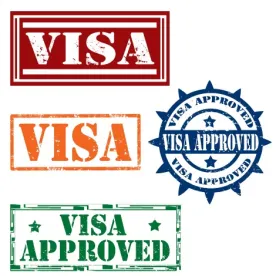The North American Free Trade Agreement (NAFTA), signed into law in 1993, eliminated trade barriers and increased investment opportunities between the three signatory countries, the United States, Mexico, and Canada. After more than 25 years, the agreement was seen to require revisions, particularly as to labor, digital trade, and data flows. A revision to NAFTA, called the United States, Mexico, Canada Agreement (USMCA), has passed both the House of Representatives and the Senate with broad bipartisan support.
The new treaty is expected to become effective in the spring of 2020, after ratification in Canada. A proposal to the USMCA would have changed the Treaty NAFTA visa (TN visa), but it did not materialize.
During the negotiations, in accord with the President’s “Buy American, Hire American” Executive Order, the Trump Administration reportedly wanted to reduce the scope of TN visa status by limiting the number of eligible professions and, possibly, capping the number of visas available. Canada and Mexico wanted the opposite – to expand the number of eligible professions and update the listed professions to bring them more in line with current technological demands. None of these changes were incorporated into the USMCA.
However, the Department of Homeland Security is applying a higher level of scrutiny to the TN visa category. New guidelines were issued regarding the economist category. Now, a broad range of other professions related to economists, such as financial analysts, market research analysts, and marketing specialists, will no longer qualify for TN visas. Credentials are being questioned and even those who already hold TN status may have renewals denied.
Canadians are seeing additional restrictions at Ports of Entry. Previously, it was possible for a Canadian citizen to obtain L-1 visa status, either for an initial approval or a renewal, at the border, without having to file an application with USCIS. However, in 2019, without issuing any policy memo, Customs and Border Protection (CBP) began refusing to adjudicate anything other than an initial L petition or applications for intermittent or commuter Ls at the border. All other categories of Canadian L visas now require costly filings by petitioning employers with USCIS. Employers can expect long processing times, or having to pay an additional $1,440 fee for expedited “premium processing,” not to mention dealing with the costs and delays of Requests for Evidence this type of visa has drawn lately.
In the meantime, Canada is taking advantage of stricter scrutiny of all U.S. work visas by “inviting” frustrated companies to move their offices, or just their employees, to Canada. Even during the USMCA negotiations, Canadian Prime Minister Justin Trudeau was encouraging companies to consider their new two-week fast track employment visa process. Whether this will affect U.S. policies, remains to be seen.




 />i
/>i